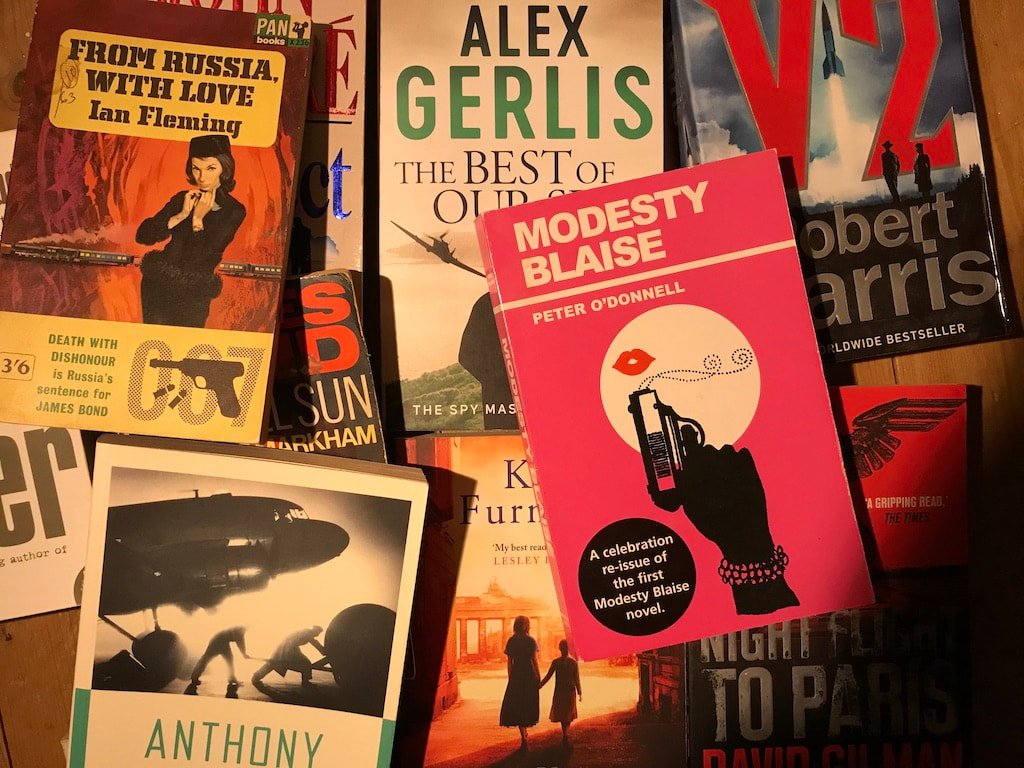|
OK, first things first... I'm not speaking from any place of authority, just picking things up as I go along, but by 'comps' here I mean comparable or comparative or comparison titles – the ones we've been told to provide in our query letters to literary agents, yes?
And I don't know about you, but I found it very hard to come up with two or three examples of published novels that are sufficiently like mine to be cited as valid comparisons. Until, that is, I realised something... The novel(s) that I want my novel(s) to be like are novel(s) that I like but are not necessarily the novel(s) I'd say my novel(s) are like because the novel(s) I'm going to say my novel(s) are like are not necessarily novels that I like. (And breathe...) Or to put it another, less feverish, way: I used to get hung up on thinking that my comps should be the beloved novels that inspired and influenced my writing, the novels I dream of one day seeing mine alongside in a library or maybe a favourite secondhand bookshop. Whereas, of course, one's comps should be contemporary examples of novels whose readers might be tempted to pick up yours if they spotted them alongside their customary purchases in a modern bookshop, especially one like Amazon. That way, you can show an agent or a publisher that you've thought about where yours would fit in the market – and that you're familiar with the market – even if you think (as I do) that yours offers that market something different or (God forbid) that you could do it better. I think that's a valid way of looking at it, don't you? Of course you need to understand what works and what might not work so well for today's readers. But surely it's still OK to be inspired in the first place by other, older titles than the ones you use as comps? I mean, if your inspiration comes from a novel you found on the bestsellers list a year ago, well, let's just say I'd hate to see you at your uninspired... Now, in my case there's an added complication. I don't necessarily have a single target audience. But I can't be alone in this. Isn't that why there are all those easily mockable 'Finding Nemo meets Last Tango in Paris' type pitches? And surely that's why they ask for two or three examples of comps...? So anyway, I reckon I've come to terms with why I might have to appeal to readers of x, y and z – and why I might be asked to specify who I think x, y and z are. I just thought it might be useful to share the way that I've come to terms with it. Which is by holding onto my motivation to do it differently. And maybe even better.
2 Comments
Julie Allen Hartley
28/3/2023 10:57:14 am
An interesting article. It is certainly a sign of our times that so much effort and thought has to go into marketing and sales. I think you seem to handle this aspect very well without barely a thought against it and that's commendable on your part. You willingly see it as necessary, and seem to find it easy.
Reply
Paul Phillips
28/3/2023 11:16:31 am
I suppose I feel there’s no point fighting against commercial reality, and if something has potential it still needs to find its place on the shelves. What does get me upset though is when you can tell that something is being cynically marketed as just like… / the new so-and-so… when it’s a poor imitation at best. That’s disrespecting the readers.
Reply
Your comment will be posted after it is approved.
Leave a Reply. |
My story...I've been writing for as long as I can remember (I think my first letter was a P). I got a degree writing about other people's writing and ever since then I've earned a living writing commercially, one way or another. But I never stopped writing and refining my own stuff. I just didn't do anything with it, until now. Archives
May 2024
Categories |

 RSS Feed
RSS Feed